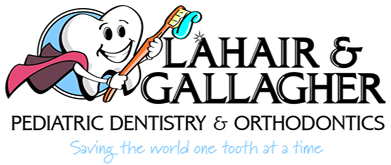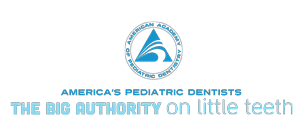

New Patient Forms:
New Patients, save time by printing out and completing the forms below before your first visit.
Contact and Insurance Information
Authorization to Release Information
Development and Pain Control
The doctors make every effort to administer local anesthetics in a slow, gentle, and comfortable manner, thus eliminating any pain that may accompany dental treatment. The duration of numbness after treatment varies from patient to patient. Generally, the numbness wears off within 2 to 3 hours. Parents must be careful to watch their child for chewing or biting of the inner cheeks or tongue that can cause them to be injured.
What Dental Problems Could My Child Have?
Some dental problems begin very early in life. One concern is baby bottle tooth decay, a serious condition caused by a child staying on a bottle (or breast) too long. Another problem is gum disease. About 40% of children 2 to 3 years old have at least mild inflammation of gum tissues. Oral habits (such as digit sucking) should also be checked. The earlier the dental visit, the better the chances of preventing problems. Strong, healthy teeth help your child chew food easily, speak clearly, and feel good about their appearance.
Why Are Baby Teeth So Important?
Primary teeth are important because they help with proper chewing and eating, help in the speech development, and add to an attractive appearance. A child who can chew easily, speak clearly, and smile confidently is a happier child. Healthy primary teeth allow normal development of the jaw bone and muscle, save space for the permanent teeth, and guide them in place. If a baby tooth is lost too soon, permanent teeth may come in crooked. Decayed baby teeth can cause pain, abscesses, infections, and can spread to the permanent teeth. Also, your child's general health can be affected if diseased baby teeth aren't treated. Remember, some primary molars are not replaced until age 10 to 14, so they must last for years.

